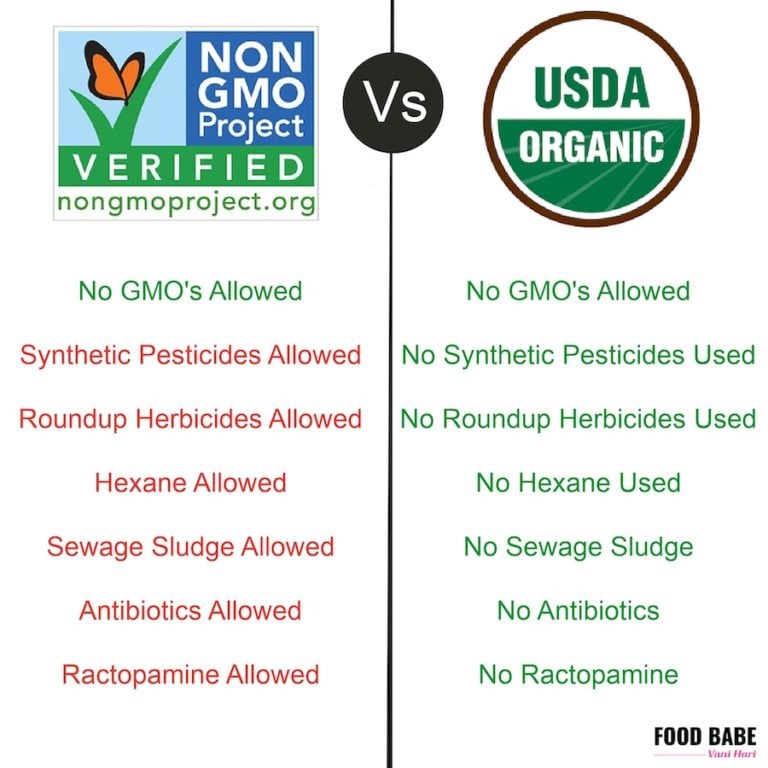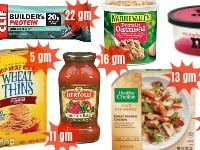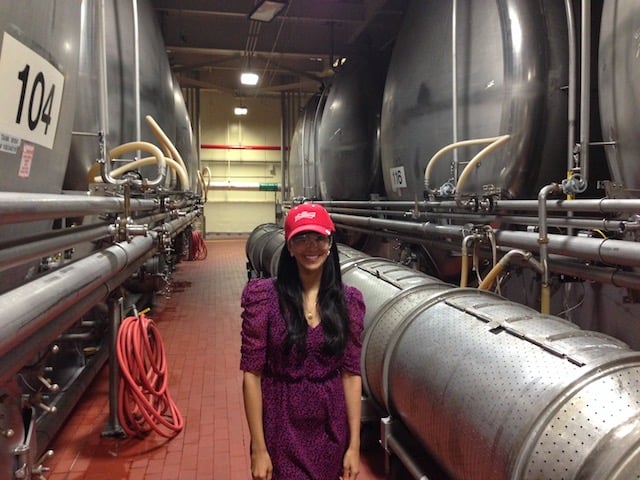I recently posted this graphic on social media about the difference between non-GMO food vs. organic food and people went wild… Which one do you think is safer to eat?

When I have a choice, I choose certified organic food for all these reasons and more!
Non-GMO Project verifies that a product doesn’t contain GMO ingredients. While that is good, it’s not the whole story about what the product contains, how it was produced, and where it came from.
It’s key to remember:
Organic food is non-GMO, but non-GMO food isn’t necessarily organic.
Let’s break it down…
- USDA Organic regulations prohibit any GMO ingredients in a certified organic product. (1)
- Organic crops cannot be grown with synthetic pesticides. Non-GMO crops can be grown the same as conventional crops and can still be laden with toxic pesticide residue. (1)
- Glyphosate (Roundup) is prohibited on organic crops. Non-GMO crops (such as non-organic wheat and non-organic oats) can be sprayed pre-harvest with Roundup (1) This herbicide accumulates in your body the more you are exposed to it and is linked to cancer. (2)
- Organic ingredients aren’t processed with the neurotoxin hexane. Hexane is used in the processing of many conventional oils (soybean oil, canola oil, sunflower oil) and also some additives such as soy lecithin, soy protein, and textured vegetable protein. Testing has found hexane residues in some of these ingredients, even if they’re not GMO. (1)
- Organic crops are prohibited from being fertilized with sewage sludge (biosolids) which is literally the treated waste that’s flushed down the toilet, and waste from hospitals and industry. This waste can be contaminated with heavy metals, endocrine disruptors, pathogens, pharmaceuticals, pesticides, and dioxins – it’s basically a toxic chemical soup! (1)
- Organic animals aren’t fattened up with growth-promoting antibiotics or growth-promoting drugs, like ractopamine. (1)
All of this is why the Non-GMO label is NOT enough!
With organic food, you’ll automatically avoid most of the “Terrible 10” ingredients in children’s food, which I write about in my brand new book, Food Babe Family.
Chemicals like synthetic preservatives, artificial colors, synthetic pesticides, growth hormones and antibiotics are not used in organic food! These chemicals can lead to hyperactivity in children, allergies, skin issues, and even worse – they may put you at risk for scary, life-shortening diseases like cancer.
Of course, organic food isn’t always perfect.
Some organic foods get contaminated with pesticides from nearby crops, but thankfully it’s been shown to be minimal compared to what’s found on conventional crops. There are also some controversial ingredients added to some organic products such as carrageenan, natural flavors, refined flour, and refined sugar. So, remember to always read the ingredients on the food you buy, even if it is organic.
Please share this post – It’s so important that we spread the word about what food labels really mean, so people aren’t swindled at the grocery store.
If you rely on the Non-GMO Verified label to find the safest food, the info in this post is a lifesaver! Thank you for sharing and helping others know the truth about their food.
Xo,
Vani
P.S. Want organic snack ideas for your kids? I filmed a 20-minute video on all the healthy snacks I keep in my pantry and to-go bag for when we are heading out the door. I also take these snacks everywhere we travel! To watch the video, pre-order my new book Food Babe Family and enter your receipt number here. The bonus video and snack guide will get emailed to you TODAY. This bonus video is only available for a very limited time, so make sure to get your order in now.








Thank you for this information! I have always tried to choose food with the Organic Label AND the Non-GMO Label – the majority of the time favoring the Organic Label over just the Non-GMO label. You have convinced me to NEVER just choose the Non-GMO Label by itself, as this clearly shows it is still subject to everything we do NOT want in our food. I was not aware of everything still allowed with the Non-GMO Label. It’s just sad we even have to do this with our food …
Thanks for this information. Is it true that a small percentage of non-organic, possibly GMO or “bio-engineered” ingredients is allowable even under the “organic” label? This is what I’ve heard and which is why, as much as possible, I’ve been switching to local regenerative farms that don’t use corn or soy ingredients in their feed or fertilizer which is allowed even for organic farms. I was grateful to be made aware of this so that if this is important to anyone else, they can make different choices too.
Oops! You did share that even organic foods can have hidden ingredients. What I did not know is that they can use bioengineered/GMO ingredients in the feed and fertilizer for their plants and animals. That’s the main point I intended to make.
Hi Sarita! Organic farms raising animals don’t use GMO feed, although they may use Non-GMO corn or soy. The USDA Organic label certifies that 95%-100% of the ingredients are organic, so there is a slight chance that (up to 5%) of non-organic ingredients are in the product – however they are not supposed to be GMO. There are still some tricky loopholes though, so that’s why it’s good to look for “100% certified organic” along with “Non-GMO Project” verified label to ensure it’s GMO-free.
Organically approved pesticides are used however, organic food is not pesticide free. These are “naturally” derived but still are chemicals and pesticides.
Thank you for all you do and share and I absolutely love your THE ONLY BARS!
It’s more important than ever to eat organic
I’m curious about organic sunflower, safflower and canola oil are those ok if they are organic?
Thank you.
Hate to say it but organic is a scam. If you cram a million chickens into a barn and feed them corn it doesn’t really matter if the corn is organic or not. The problem is confining animals and feeding them only grain. The vast majority of the cert organic farms are owned by the same large conglomerates and theres very little differences in their practices. Seen this first hand. Luckily, there are small local farms all over who understand this and moved to outdoor pasture based regenerative methods. Rarely do they care about any gov certification. The key is to stop goimg to the grocery store and to instead find local farms you can go visit see and smell for yourself.
What does the Food Babe think about the tofu, salmon, and miso soup at Waba Grill?